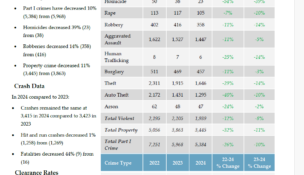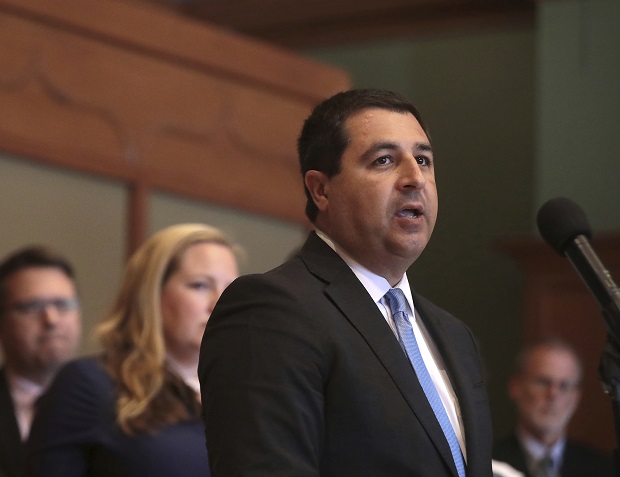State seeks to promote diversity with special-counsel contracts
By: Ali Teske//September 3, 2019//
 The next time your law firm is enlisted to provide special counsel to the state, you could find yourself having to furnish information on just how diverse your staff is.
The next time your law firm is enlisted to provide special counsel to the state, you could find yourself having to furnish information on just how diverse your staff is.
Within the past few months, the Wisconsin governor’s office of general counsel has modified the state’s special-counsel contract to require firms to furnish numbers and percentages regarding their total numbers for attorneys, non-attorneys, equity partners and directors. Firms must also supply specifics on staff members’ race and ethnicity and their identification with the LGBTQ community. The goal, says Ryan Nilsestuen, chief legal counsel to the governor, is to begin a conversation about diversity and prompt law firms to take a closer look at themselves.
Nilsestuen describes the new requirement as being a “straightforward and easy to understand action (that) can still have significant impact.”
Special-counsel contracts now include a paragraph and attachment devoted to diversity. A copy of the revised document, titled “Special Counsel Contract Template,” states: “The State of Wisconsin is committed to retaining high quality law firms that are committed to increasing the diversity of the legal profession in Wisconsin. To that end, the Attorney shall complete Attachment 1 and return it to the Office of Legal Counsel within thirty days of the effective date of the contract.”
Nilsestuen said the state’s revised special-counsel contract in many ways borrows from practices used by the Milwaukee County Corporation Counsel.
“They’ve been at the forefront of this process,” he said.
According to the governor’s office, various firms have been retained on contract since the new requirement was added this past spring. Nilsestuen said he and his colleagues expected that many law firms would respond defensively and were instead happy to see that, in a handful of cases at least, the attachments were completed and returned quicky.
That said, some firms have been not forthcoming. And even with its recent revision, the document still lacks inclusion initiatives or percentage requirements.
Nilsestuen noted that he is not aware of any other state that uses special-counsel contracts to elicit diversity information from law firms. Wisconsin, he says, will have accomplished something with this first step if it merely forces firms to take a hard look at their own makeup.
Beyond that, state officials are hoping to see both increases in diversity numbers and tangible results in the next few years. Nilsestuen said the new requirements will be a “worthwhile exercise” even they if do no more than show that a single firm has raised its numbers.
The system that the state’s new requirements borrow from, the one operated by Milwaukee County Corporation Counsel, uses a matrix to analyze diversity numbers turned in by firms.
Anne Kearney, Milwaukee County deputy corporation counsel, said, “We deal with a lot of vulnerable populations – guardianship matters, mental illness clients and contract review work.”
County officials’ goal is to ensure they are receiving the best possible legal representation from special counsel while also recognizing the importance of diversity.
“Metrics and data are the starting point to make real change,” Kearney said.
She said that requiring firms to put their numbers down in black and white provides a trove of basic facts that the county, and now the state, can use as a starting point in discussions about diversity.
According to Joel Stern, chief executive of the National Association of Minority and Women Owned Law Firms: “Diversity without inclusion is not a solution.”
Stern said the “legal profession is dead last with respect to hiring and promotion” when it comes to diversity. Only four Wisconsin firms and one firm based in both Wisconsin and Arizona are listed on the association’s website as NAMWOLF members: Bell & Manning, of Madison; Emile Banks & Associates, of Milwaukee; Gonzalez Law, of the Phoenix Valley area and Milwaukee; La Fleur Law Office, of Milwaukee; and MWH Law Group, of Milwaukee.
Stern said the association is primarily turned to by corporations and legal trade associations that are seeking to hire in-house counsel. NAMWOLF is capable of doing the legwork needed to find both outside counsel and special-contract counsel.
In the governor’s office, hiring decisions for outside counsel are made internally. Nilsestuen is optimistic, though, that he and his colleagues will branch out, calling on organizations and associations like NAMWOLF to aid in their searches.
To help make the Wisconsin legal profession a bit more diverse, Stern is calling on “Big Law” firms to set an example by taking steps to encourage minorities and women to apply for open positions. Stern said Wisconsin needs to make sures it’s the sort of place where minority and women lawyers want to move to, settle down and open a practice.
Compared with states with large legal markets, such as California and New York, Wisconsin struggles with recruitment. Both Stern and Nilsestuen agree that in-state firms need to do more to try to attract lawyers from a broader pool of candidates. Stern contends firms need to look outside the “go-to” recruitment schools and try to be innovative.
With attention now being paid to the makeup of firms enlisted for special counsel, will Wisconsin’s next step be to add diversity requirements to its courses for continuing legal education or minimum continuing legal education? Two new categories for CLE credits took effect on July 1, 2017: lawyer awareness and understanding, SCR 31.02 (3); and law practice management, SCR 31.02 (4). Even so, NAMWOLF is not recognized on the “2017-2018 General Program Approval (GPA) Sponsor” list as a CLE credits sponsor, according to the Wisconsin Board of Bar Examiner’s CLE Reporting website.
That same year, the Illinois Supreme Court amended Article VII Rule 794 (d) (1) of its Supreme Court Rules to add “diversity and inclusion” as an approved credit topic. Illinois now requires that lawyers obtain at least one hour on diversity and inclusion in the 20 hours of CLE credits they are required to obtain every two years.
Meanwhile in Wisconsin, it remains to be seen if the new requirements in the state’s special-counsel contracts will help make firms more diverse, even if just by a little bit.
Stern warns that nothing will be accomplished unless firms are willing to “treat this like any other critically important practice.” If not, Stern said this latest attempt “will fail unless (firms) see this as a strategic imperative.”
Legal News
- Steven Avery prosecutor Ken Kratz admits ‘mistakes were made’
- Colombian national extradited to Milwaukee faces International narcotics-trafficking conspiracy charge
- MPD: Milwaukee homicides down nearly 40 percent compared to last year
- EVERS: Republican lawmakers No-Show at special meeting to release statewide PFAS funding, stabilize healthcare access
- Wisconsin ICAC Task Force conference on Missing and Exploited Children highlights increase in sextortion cases
- More than 300 Wisconsin officers back in law enforcement after being fired or forced out
- Former Trump staffer who said to ‘fan the flame’ after 2020 loss hired to lead Wisconsin GOP
- Gov. Evers appoints David Casey to Serve as DOR Secretary
- Former Marine sentenced for Molotov Cocktail attack against Planned Parenthood Clinic
- ABA names 34th Annual Margaret Brent Women Lawyers of Achievement Awards honorees
- FBI launches criminal investigation into Key Bridge collapse
- Man charged in slaying after woman’s leg found at Milwaukee-area park
WLJ People
- Power 30 Personal Injury Attorneys – Russell Nicolet
- Power 30 Personal Injury Attorneys – Benjamin Nicolet
- Power 30 Personal Injury Attorneys – Dustin T. Woehl
- Power 30 Personal Injury Attorneys – Katherine Metzger
- Power 30 Personal Injury Attorneys – Joseph Ryan
- Power 30 Personal Injury Attorneys – James M. Ryan
- Power 30 Personal Injury Attorneys – Dana Wachs
- Power 30 Personal Injury Attorneys – Mark L. Thomsen
- Power 30 Personal Injury Attorneys – Matthew Lein
- Power 30 Personal Injury Attorneys – Jeffrey A. Pitman
- Power 30 Personal Injury Attorneys – William Pemberton
- Power 30 Personal Injury Attorneys – Howard S. Sicula











